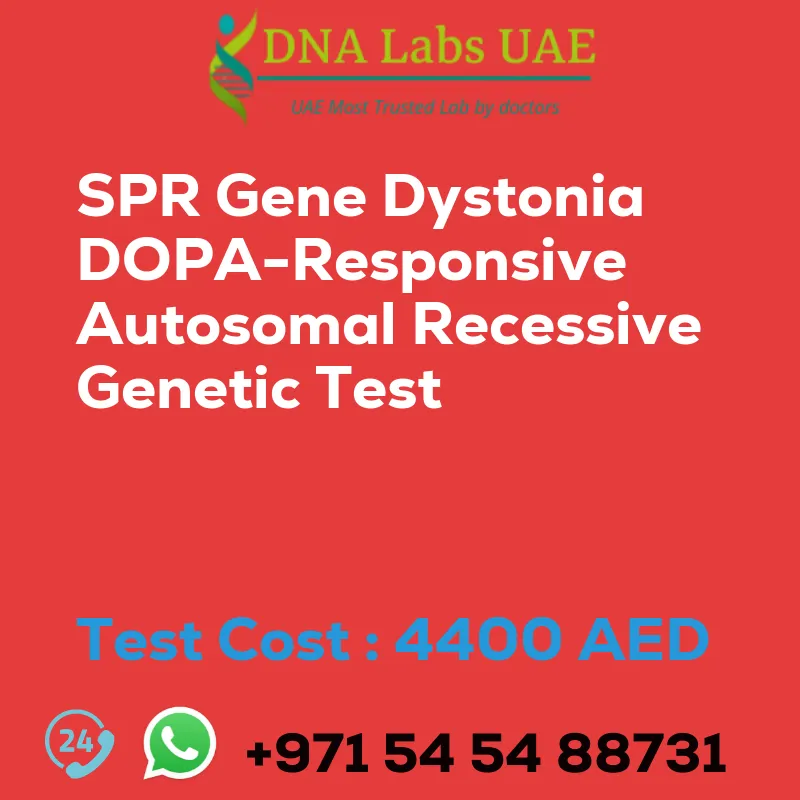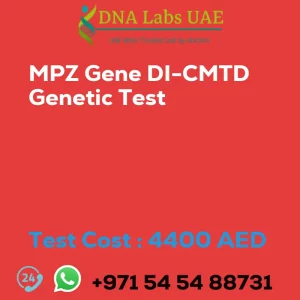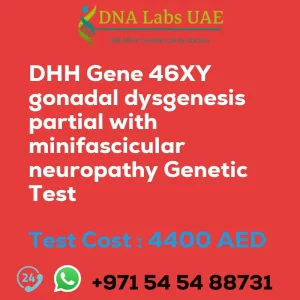SPR Gene Dystonia DOPA-responsive autosomanl recessive Genetic Test
Test Name: SPR Gene Dystonia DOPA-responsive autosomanl recessive Genetic Test
Components: DNA Labs UAE offers the SPR Gene Dystonia DOPA-responsive autosomanl recessive Genetic Test at a price of 4400.0 AED.
Sample Condition: The test can be performed using blood, extracted DNA, or one drop of blood on an FTA card.
Report Delivery: The test results will be delivered within 3 to 4 weeks.
Method: The SPR Gene Dystonia DOPA-responsive autosomanl recessive Genetic Test utilizes NGS (Next Generation Sequencing) technology.
Test Type: This test is specifically designed for Neurological Disorders.
Referring Doctor: The test should be requested by a Neurologist.
Test Department: The SPR Gene Dystonia DOPA-responsive autosomanl recessive Genetic Test is conducted in the Genetics department of DNA Labs UAE.
Pre Test Information: Before undergoing the SPR Gene Dystonia DOPA-responsive autosomanl recessive Genetic Test, it is important to provide the clinical history of the patient who is suspected to have SPR Gene Dystonia. Additionally, a genetic counseling session may be conducted to draw a pedigree chart of family members affected by SPR Gene Dystonia, DOPA-responsive, autosomal recessive.
Test Details: SPR gene dystonia, DOPA-responsive, autosomal recessive (DRDAR) is a rare neurological disorder caused by mutations in the SPR gene. The SPR gene is responsible for producing an enzyme called sepiapterin reductase, which plays a role in the production of neurotransmitters like dopamine, serotonin, and norepinephrine. Individuals with DRDAR experience involuntary muscle contractions and spasms, leading to twisting and repetitive movements (dystonia). These symptoms typically manifest in childhood and can affect various parts of the body, including the limbs, neck, and face. However, DRDAR is unique as it can be treated with levodopa, a medication that increases dopamine levels in the brain. The NGS genetic testing offered by DNA Labs UAE can identify mutations in the SPR gene that cause DRDAR. This comprehensive test involves sequencing the entire gene to detect any changes in the DNA sequence that may disrupt the function of the sepiapterin reductase enzyme. Identifying these mutations is crucial for accurate diagnosis and treatment of the disorder, as well as providing valuable information for genetic counseling.
| Test Name | SPR Gene Dystonia DOPA-responsive autosomanl recessive Genetic Test |
|---|---|
| Components | |
| Price | 4400.0 AED |
| Sample Condition | Blood or Extracted DNA or One drop Blood on FTA Card o |
| Report Delivery | 3 to 4 Weeks |
| Method | NGS Technology |
| Test type | Neurological Disorders |
| Doctor | Neurologist |
| Test Department: | Genetics |
| Pre Test Information | Clinical History of Patient who is going for SPR Gene Dystonia, DOPA-responsive, autosomanl recessive NGS Genetic DNA Test A Genetic Counselling session to draw a pedigree chart of family members affected with SPR Gene Dystonia, DOPA-responsive, autosomanl recessive |
| Test Details |
SPR gene dystonia, DOPA-responsive, autosomal recessive (DRDAR) is a rare neurological disorder that is caused by mutations in the SPR gene. This gene provides instructions for making an enzyme called sepiapterin reductase, which is involved in the production of neurotransmitters such as dopamine, serotonin, and norepinephrine. Individuals with DRDAR experience involuntary muscle contractions and spasms, which can cause twisting and repetitive movements (dystonia). These symptoms usually appear in childhood and can affect different parts of the body, including the limbs, neck, and face. However, DRDAR is unique in that it can be treated with levodopa, a medication that increases dopamine levels in the brain. NGS genetic testing can be used to identify mutations in the SPR gene that cause DRDAR. This test involves sequencing the entire gene to look for changes in the DNA sequence that may disrupt the function of the sepiapterin reductase enzyme. Identifying these mutations can help with diagnosis and treatment of the disorder, as well as provide information for genetic counseling. |







